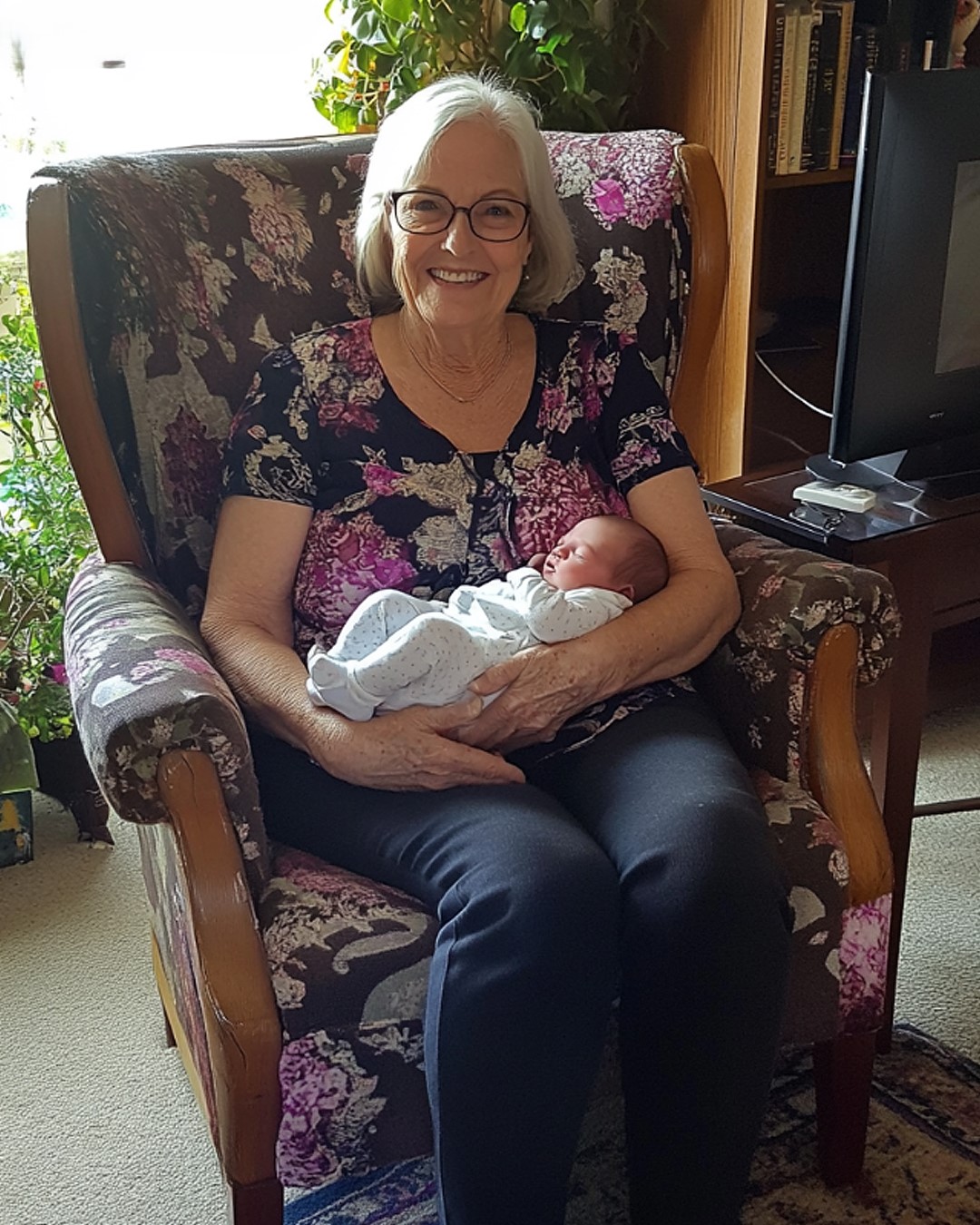MIL Insisted on Babysitting My Son, I Came Home Early And Overheard Her Saying, Dont Worry, She Wont Find Out Who You Really Are

When I came home early one Friday, I never imagined overhearing my mother-in-law whispering a haunting phrase to my six-month-old son: “She won’t find out who you really are.” Those words unraveled decades of pain and revealed a hidden tragedy that would change everything.
Margaret had been infatuated with Ethan from the moment he was born.
“Let me hold him,” she’d insist, eagerly taking him from my arms. “I’ve done this before—I know what I’m doing.”
At first, I thought it was endearing how much she cared. She visited daily, doting on Ethan and offering advice I never asked for.
“You’re overfeeding him,” she would say one day.
“He looks just like Peter,” she would sigh the next, her eyes misty.
Occasionally, her comments unsettled me. Once, when Ethan was just a month old, she held him close and murmured, “There’s something about him. It feels like I’ve known him forever.” I brushed it off as a peculiar way of expressing love, but something in her tone made my skin crawl.
When it came time for me to return to work, I reluctantly agreed to let Margaret babysit. “He’ll be safe with me,” she said warmly. “I’ll care for him like he’s my own.”
I told myself it was fine. Ethan adored her, and I needed the help. But deep down, unease gnawed at me.
One Friday, I finished work early and decided to surprise them with cupcakes I’d baked that morning. As I walked in, Margaret’s voice floated down the hall, soft yet strangely commanding.
“Don’t worry,” she whispered, “she won’t find out who you really are.”
I froze in the doorway, my pulse racing. What could she mean?
Carefully setting the cupcakes on the counter, I crept down the hall. The nursery door was slightly ajar, and I peeked inside.
Margaret sat in the rocking chair, cradling Ethan, her back to me. She was stroking his hair and murmuring softly.
“Margaret?” I said, my voice sharper than I intended as I stepped into the room.
She startled, clutching Ethan tightly. “Oh! You’re home early.”
“What were you saying?” I asked, trying to steady my voice.
“Nothing,” she said too quickly. “I was just talking to Ethan. Babies like hearing your voice—it soothes them.”
I narrowed my eyes. “That’s not what it sounded like. What don’t I know?”
Her face paled, and she stood, still holding Ethan. “I don’t know what you mean.”
I blocked her path. “I heard you say, ‘She won’t find out who you really are.’ What does that mean?”
Margaret’s hands trembled. Finally, she set Ethan in his crib and reached into her purse, pulling out an old photograph. Her voice was thick with emotion as she handed it to me.
In the photo, two identical newborns lay side by side, swaddled in matching blue blankets.
“That’s Peter,” she said, her voice breaking. “And that’s James.”
“James?” I echoed, stunned.
“Peter’s twin,” she said, tears streaming down her face. “He only lived three days.”
Shock rooted me in place. “Peter had a twin? He never told me.”
“He doesn’t know,” she whispered. “I never told him.”
Her words hit me like a blow.
“I didn’t want him growing up with that pain,” she continued, her voice cracking. “But when Ethan was born… I saw James in him. His eyes, his smile—it’s all James.”
I took a shaky breath. “Margaret, Ethan isn’t James. He’s his own person.”
Her head shook vehemently. “You don’t understand. I lost James, and now I have him back.”
The intensity of her words sent a chill through me. That evening, after Ethan was asleep, I told Peter everything.
At first, he didn’t believe me. But when I showed him the photograph, the truth was undeniable.
“She thinks Ethan is James?” Peter asked, disbelief and anger mingling in his voice.
“Yes,” I said. “She needs help, Peter. And we need to ensure Ethan is safe.”
The next day, we confronted Margaret. She admitted the truth through tears, her grief pouring out in waves. Peter, shaken but determined, told her she needed professional help.
Over the following months, Margaret began therapy, gradually unpacking decades of unspoken sorrow. She shared stories about James and the weight of losing him. Little by little, she started to see Ethan as her grandson—not as the son she lost.
I stayed vigilant, never leaving Ethan alone with her until I was sure she had let go of her belief.
One day, as we sat in the living room, Margaret turned to me with misty eyes. “Thank you,” she said softly. “For giving me the chance to heal.”
Weeks later, during a family dinner, I watched Margaret laugh as Ethan giggled in her lap. Her smile was lighter, freer.
In that moment, I realized something had shifted. The shadow of the past no longer loomed over us. By facing it together, our family emerged stronger, bound not just by love but by resilience.
Healing doesn’t mean forgetting. It means learning to let go.